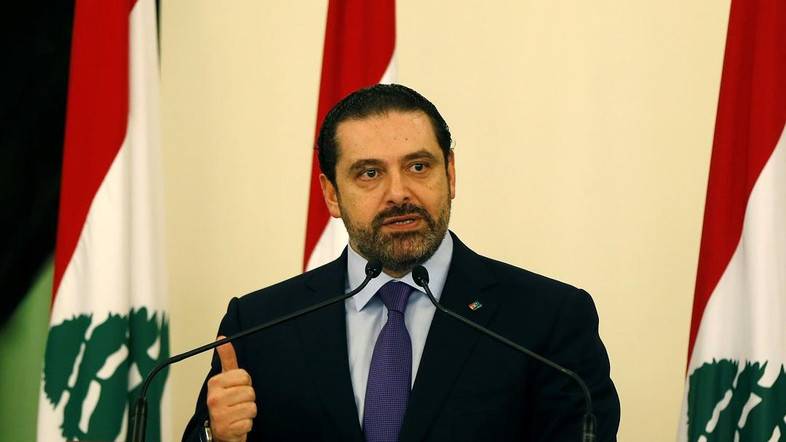Lebanon's Hariri may withdraw resignation
Shares

ROME: Lebanese Prime Minister Saad al-Hariri indicated that he might withdraw his resignation next week, saying matters were “positive” and he would rescind his decision if they remained so, a statement from his press office said.
Hariri announced his resignation in a televised statement while he was in Saudi Arabia on Nov. 4, prompting a political crisis in Lebanon and thrusting it back into a regional tussle between Riyadh and its main regional foe, Iran.
Lebanese officials say Saudi Arabia coerced Hariri, a long-time ally of Saudi Arabia, into resigning and held him there against his will until an intervention by France led to his return to Lebanon last week. Saudi Arabia denies this.
Hariri agreed to shelve the decision after meeting Aoun last week, saying this was to allow for dialogue. Hariri wants all Lebanese to commit to staying out of regional conflicts, a reference to the powerful armed Shi‘ite group Hezbollah, which Saudi Arabia accuses of sowing strife in the Arab world with support from Iran.
“Matters are positive, as you hear, and if this positivity continues we will announce, God willing, to Lebanese next week with President Michel Aoun and Parliament Speaker Nabih Berri the withdrawal of the resignation,” Hariri said on Wednesday.
He was speaking during a celebration to mark the Prophet Mohammad’s birthday.
Earlier on Wednesday, Aoun was quoted as saying that Hariri would “certainly” remain prime minister and Lebanon’s political crisis will be resolved in a few days.
“We have just finished talks with all the political forces, within and outside government. There is a broad agreement,” the newspaper La Stampa quoted him as saying during a visit to Italy.
Aoun did not accept Hariri’s televised resignation, accusing Saudi Arabia of holding Hariri in Riyadh and forcing him to step down.
Hariri eventually returned to Beirut on Nov. 22 and postponed his resignation.
He said on Monday that he would stay on as prime minister if Iran’s Lebanese ally, Hezbollah, accepted a policy of staying out of regional conflicts.
Asked about that demand, Aoun -- a Hezbollah ally -- said: “Hezbollah has fought against Islamic State terrorists in Lebanon and abroad. But when the war against terrorism is finished, their fighters will come back to the country,” La Stampa reported.
The group has fought alongside President Bashar al-Assad’s forces in Syria against rebels seeking to oust him, including factions that were backed by Saudi Arabia.
